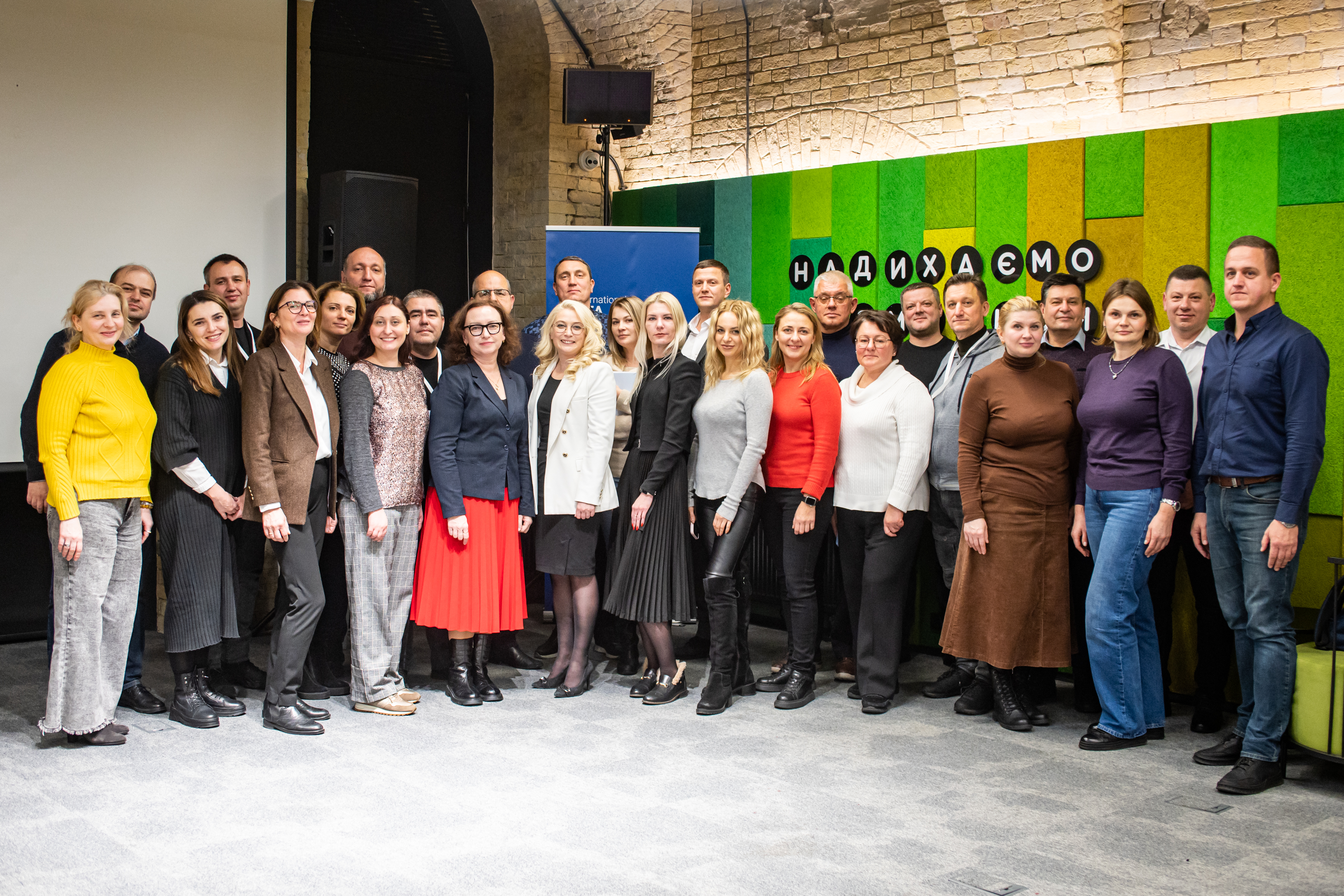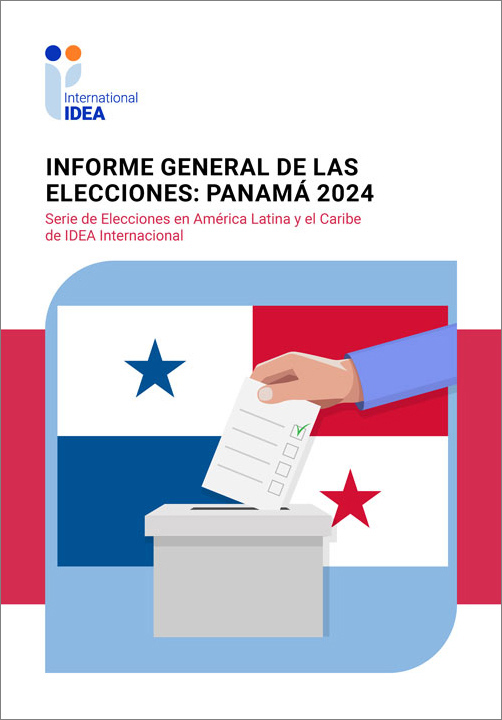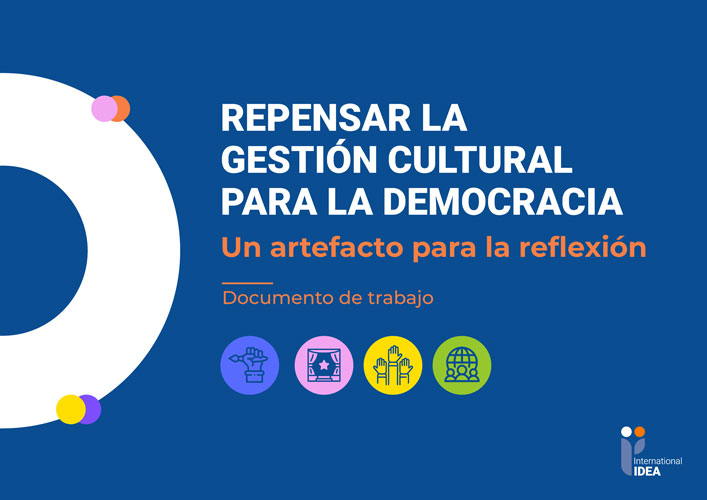Democracy is a recognized international goal in its own right. In the Millennium Declaration, UN Member States commit to spare no effort to promote democracy. Supporting democracy around the world is a cornerstone of the foreign and development policies of many donor countries.
Search
Region
Country
Type
Most Tunisians agree that their new constitution is an advance, despite the imperfections. The people’s new democratic spirit is what will make Tunisia a success, and it will hopefully serve as an inspiration for the entire Arab region in times to come.
Participation and representation are two fundamental elements and principles of democracy. They affirm that a democracy is dependent on its citizens and that this ownership is expressed through meaningful participation by and representation of all citizens in democratic institutions and processes.
The run off presidential elections in both Costa Rica and El Salvador are going to be fascinating contests as so much uncertainty surrounds the outcome, given that no candidate prevailed in the 2 February first round of elections. Thus, the political environment remains volatile. To win the first round, a candidate had to get 50% of the vote in El Salvador and 40% in Costa Rica.
Costa Rica y El Salvador experimentarán una apasionante segunda vuelta en sus respectivas elecciones presidenciales porque, el pasado 2 de febrero, ninguno de los candidatos alcanzó los votos necesarios para evitar el balotaje: 50%, El Salvador; 40% Costa Rica.
Citizens across all continents have used the citizen-led democracy assessments pioneered by International IDEA for the past 10 years. The Institute is now releasing two new resources.
Citizen-led democracy assessments around the world – International IDEA’s State of Democracy assessment frameworks
The film tells the story of citizens assessing the democracy in their country using International IDEA’s State of Democracy assessment frameworks.
Disclaimer: The views expressed in this analysis are the author’s and should in no way be construed to represent those of International IDEA, its Board and/or Council members.
Declaracion: Las opiniones expresadas en este comentario son las del miembro del personal. Este comentario es independiente de intereses nacionales o políticos específicos. Las opiniones expresadas no representan necesariamente la posición institucional de International IDEA, su Consejo de Asesores o su Consejo de los Estados Miembros.
Muy pocos están dispuestos a dejar el poder, y muchos de los que se fueron intentan regresar
This book explores how politics and democracy plays out in reality in Africa as the major aid-receiving continent.
This week, on 6–7 February 2014, the issue of democratic governance will be addressed by the UN Open Working Group on the Sustainable Development Goals (SDGs) at the UN Headquarters in New York. Simultaneously, the office of International IDEA’s Permanent Observer to the UN is co-organizing two side-events on the role of democracy in the post-2015 development agenda and how to measure democratic governance.
On 2 February, none of the presidential candidates in Costa Rica reached the minimum percentage of votes prescribed by legislation to win the election (40%). Therefore, a runoff will be held on 6 April be-tween the two leading candidates: Luis Guillermo Solís with Partido Acción Ciudadana (PAC), receiving 30.95% of the vote, and Johnny Araya, of the incumbent Partido Liberación Nacional (PLN), with 29.59% of the votes.
En Costa Rica, el domingo 2 de febrero ninguno de los candidatos a presidente alcanzó el porcentaje de votación que establece la legislación para llegar al poder (40%). La decisión final se conocerá en segunda ronda electoral, el próximo 6 de abril, entre los dos candidatos que obtuvieron un mayor porcentaje: el candidato del Partido Acción Ciudadana (PAC) Luis Guillermo Solís con 30.95%, y el candidato oficialista Johnny Araya del Partido Liberación Nacional (PLN), con 29.59% de los votos.
Election primaries have the capacity to improve the quality of democracy by engaging citizens and political party members more in the political process of candidate selection. On 23 – 24 January, International IDEA, UNDP and the Central Electoral Board (JCE) of the Dominican Republic convened a seminar in Santo Domingo on Election Primaries in Latin America and the Dominican Republic: experiences, balance, and perspectives.
Los días 23 y 24 de enero de 2014, se realizó en Santo Domingo, República Dominicana el Seminario Internacional “Elecciones Primarias en América Latina y República Dominicana: experiencias, balance y perspectivas”, organizado por la Junta Central Electoral, IDEA Internacional y el PNUD, en la cual se reunieron especialistas en derecho, política y asuntos electorales, de América Latina, así como magistrados electorales, senadores, diputados y dirigentes políticos dominicanos, quienes tuvieron
Elections involve much more than organizing a single polling day. Instead they are a continuous process - a huge logistical exercise leading up to the vote, and also dealing with what happens afterwards.
Around 4.6 million Salvadorans are eligible to cast their votes in the presidential elections on 2 February for the 2014-19 term. The latest opinion surveys indicate that the contest will be close and have to be decided in a runoff –scheduled for 9 March– because none of the candidates will reach the 50% plus one of all valid votes needed to win.
Alrededor de 4.6 millones de salvadoreños podrán votar en elecciones presidenciales el próximo 2 de febrero para el período 2014-2019. Los últimos sondeos de opinión indican que la contienda será cerrada y deberá resolverse en segunda vuelta –programada para el 9 de marzo– ya que ninguno de los candidatos alcanzaría el 50% más uno de los votos válidos.
On 2 February 2014, Costa Ricans will cast their votes in elections for the President of the Republic, two vice-presidents, and 57 deputies to the Legislative Assembly (LA).
El próximo 2 de febrero los costarricenses están convocados a votar en las elecciones nacionales. En esta ocasión se elige al Presidente de la República en conjunto con dos vicepresidentes y 57 diputados de la Asamblea Legislativa a través de listas cerradas y bloqueadas.


